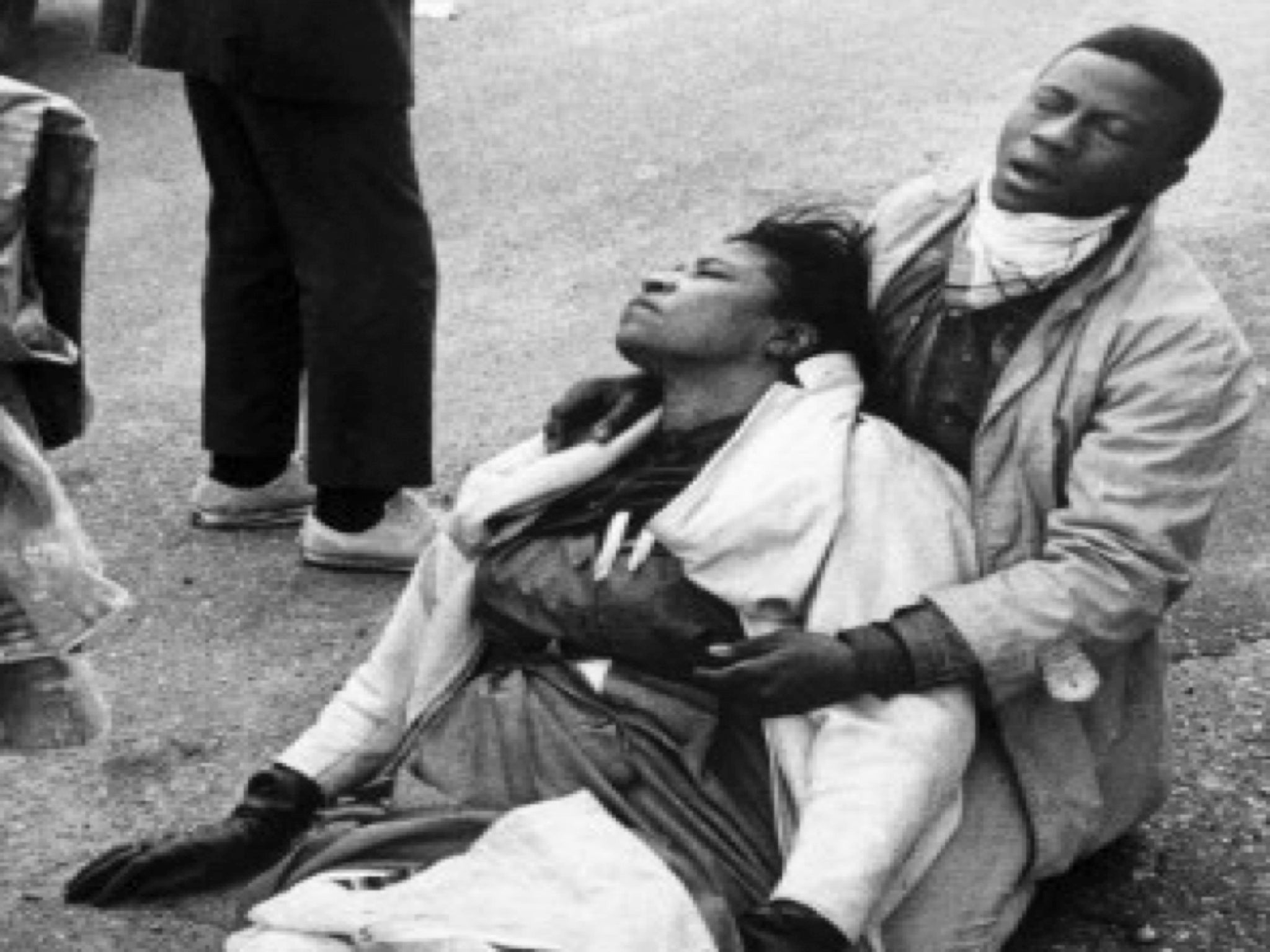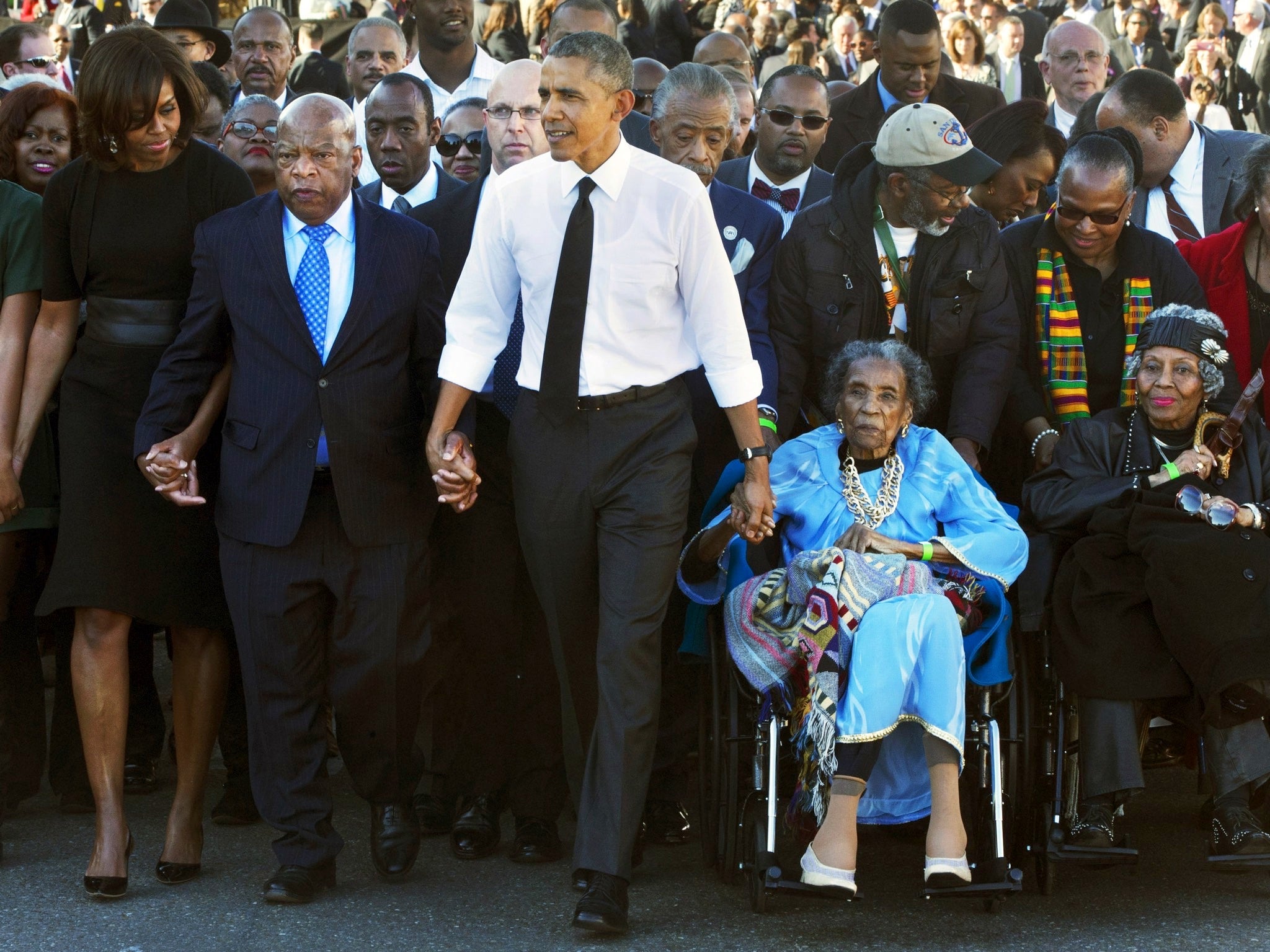Selma civil rights activist Amelia Boynton Robinson dies aged 104
Life-long campaigner played seminal role in struggle
Your support helps us to tell the story
From reproductive rights to climate change to Big Tech, The Independent is on the ground when the story is developing. Whether it's investigating the financials of Elon Musk's pro-Trump PAC or producing our latest documentary, 'The A Word', which shines a light on the American women fighting for reproductive rights, we know how important it is to parse out the facts from the messaging.
At such a critical moment in US history, we need reporters on the ground. Your donation allows us to keep sending journalists to speak to both sides of the story.
The Independent is trusted by Americans across the entire political spectrum. And unlike many other quality news outlets, we choose not to lock Americans out of our reporting and analysis with paywalls. We believe quality journalism should be available to everyone, paid for by those who can afford it.
Your support makes all the difference.The state troopers who attacked and beat Amelia Boynton Robinson did so with such vigour that she was knocked unconscious.
The image of her lying on the floor of the Edmund Pettus Bridge in Selma on what came to be known as “Bloody Sunday” made headlines around the world.
The scenes of people being clubbed and tear-gassed in Alabama helped propel the march into becoming a focus for the civil rights struggle, and people never forgot the role Ms Robinson played. For the veteran campaigner, the struggle was “entire life”.

This week, the family of Ms Boynton Robinson revealed she had died at the age of 104. She had been hospitalised in Montgomery in July after having a major stroke, the Associated Press said.
“The truth of it is that was her entire life. That’s what she was completely taken with,” her son, Bruce Boynton, said of his mother’s role. “She was a loving person, very supportive – but civil rights was her life.”
Fifty years after the historic march, Barack Obama, the first black president of the United States, joined her in a trip across the span during a commemoration.
In January, Ms Boynton Robinson attended the State of the Union address as a special guest of Democratic Alabama representative Terri Sewell, who said Ms Boynton’s 1964 run for Congress paved the way for her.

Ms Sewell is Alabama’s first elected black congresswoman. Ms Boynton Robinson was the first woman to run on a Democratic ticket in Alabama and the first black woman to run for Congress in the state, according to the AP.
“Mrs Boynton Robinson suffered grave injustices on the Edmund Pettus bridge in Selma at the hands of state troopers on Bloody Sunday, yet she refused to be intimidated,” Ms Sewell said in January.
“She marched with Dr Martin Luther King, my colleague Representative John Lewis and thousands of others from Selma to Montgomery and ultimately witnessed the day when their work led to the passage of the historic Voting Rights Act of 1965.”
Ms Boynton Robinson had asked Martin Luther King Jr to come to Selma to mobilise the local community in the civil rights movement.
She worked with the Southern Christian Leadership Conference and helped plan the Selma to Montgomery march. She was invited as a guest of honour to attend the signing of the Voting Rights Act of 1965 by President Lyndon B Johnson.
Her role in the event was reprised in the movie Selma, in which she was portrayed by actress Lorraine Toussaint.
Ms Boynton Robinson, born in Savannah, Georgia, worked as an educator there and with the US Department of Agriculture in Selma, Alabama. She educated local residents on food production, nutrition, health care and more, according to the Encyclopaedia of Alabama.
Ms Boynton Robinson’s family said in a statement that she was surrounded by relatives and friends when she died at around 2.20am.
Join our commenting forum
Join thought-provoking conversations, follow other Independent readers and see their replies
Comments